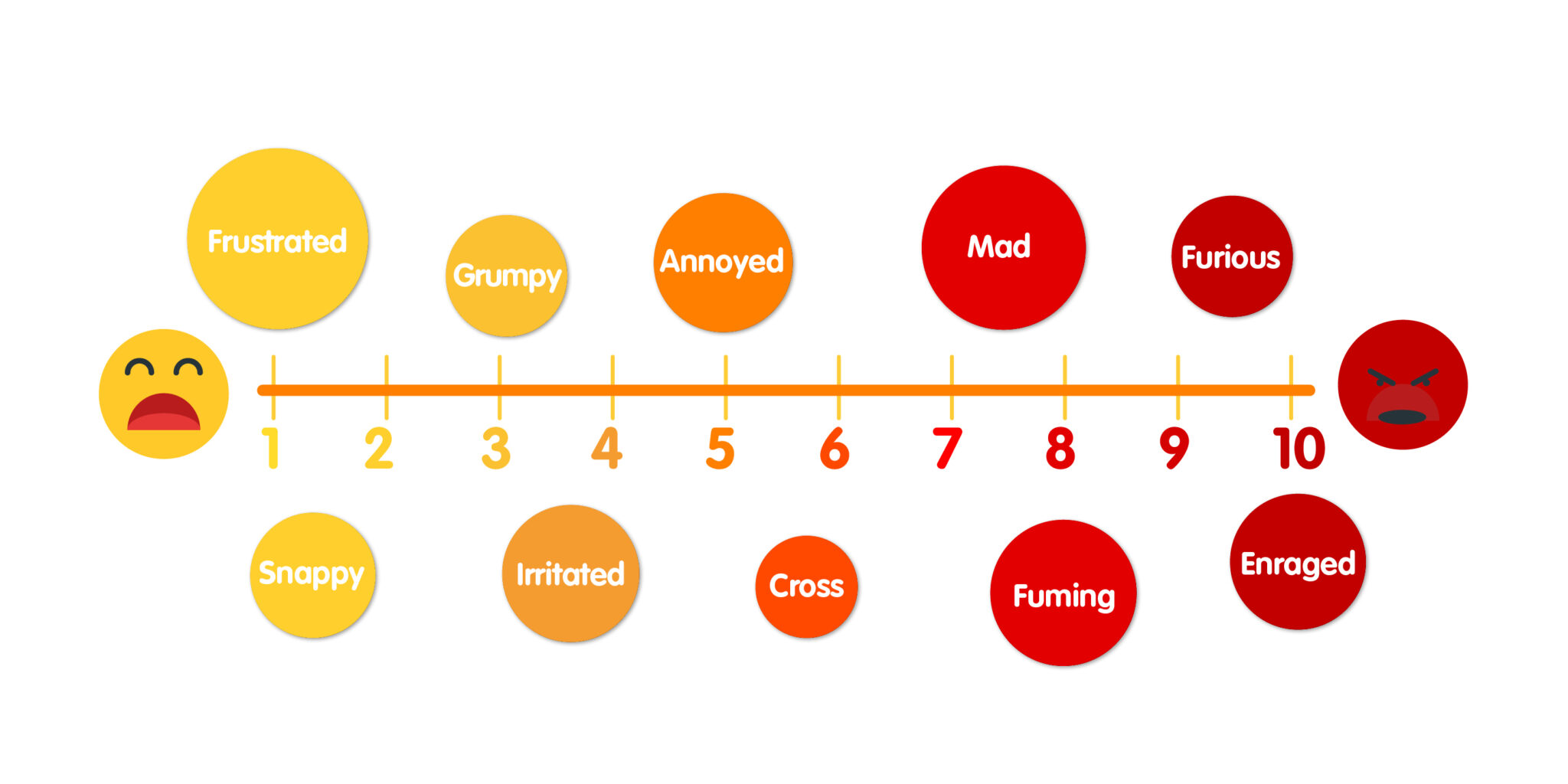
Angry My Safety Net
Grammar explanation We use comparative adjectives to compare two things or show change. The comparative form depends on the number of syllables in the adjective. Adjectives with one syllable To make comparative forms with one-syllable adjectives, we usually add -er: old → older clean → cleaner slow → slower If an adjective ends in -e, we add -r:
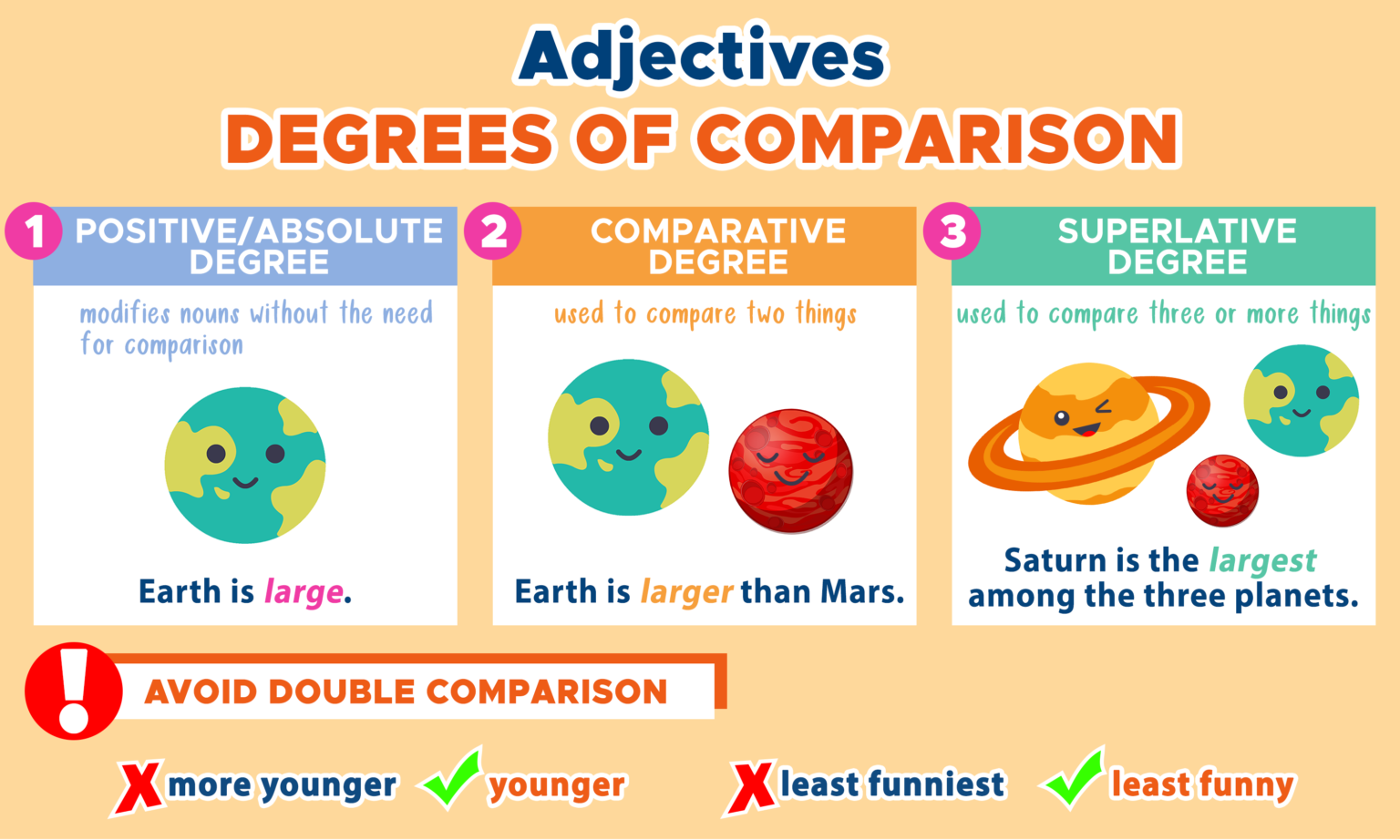
Degrees of Comparison Comparing Nouns Curvebreakers
Degrees of Comparison This page is about comparatives (also called the "comparative degree" or the "second degree of comparison"), but every adjective or adverb can be written in one of three degrees: The Positive Degree. The positive degree offers no comparison. It just tells us about the existence of a quality (e.g., nice, nicely).

English Comparative & Superlative Adjectives List; Adjective
In grammar, the degrees of comparison relate to adjectives and adverbs. Every adjective and adverb can be written in one of three degrees: The Positive Degree. This offers no comparison. It just tells us about the existence of a quality. For example: adjectives: slow, beautiful, happy adverbs: slowly, beautifully, happily The Comparative Degree.

100 Examples of Degrees of Comparison EngDic in 2023 Degrees of
The/The Comparatives. For each sentence, choose the correction combination of comparatives to make a sentence. 1. The ____ you study for these exams, the ____ you will do. 2. She doesn't really like vodka, so the ____ a bottle you find, the ____ it will be for us! 3.
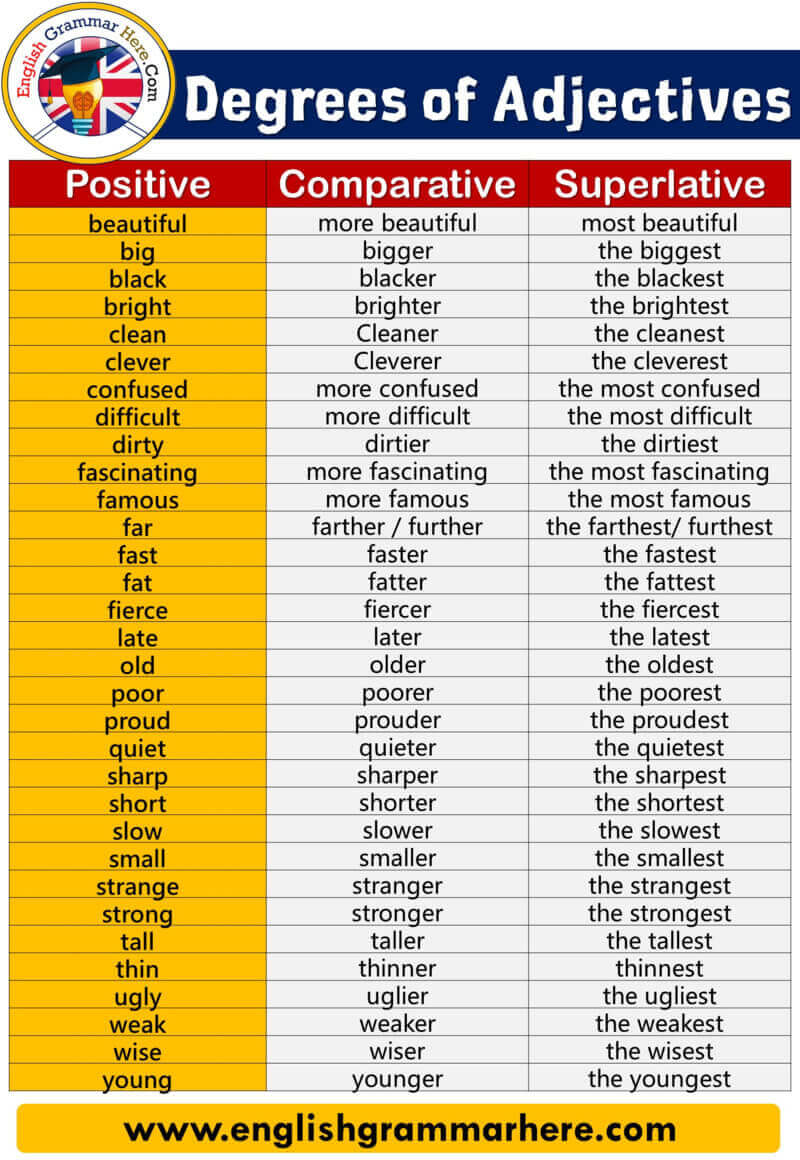
Degrees of Comparison 100 Examples English Grammar Here
A degree of comparison is a form of adjective that is used to compare a person or thing possessing the same quality with another. It is related to the adjective or adverb in a sentence. The Collins Dictionary defines the 'degree of comparison' as "the listing of the positive, comparative, and superlative forms of an adjective or adverb."

Pin by Aornitta P. on comparative degree Adjectives, Superlative
Most descriptive adjectives can show degree of quality or quantity by forming two degrees of comparison: the comparative degree and the superlative degree. These degrees are formed from the positive degree, which is the usual form of adjectives. The comparative and superlative forms can be simple (bigger, biggest) or compound (more attentive.

100 Adjectives, Comparatives and Superlatives List Adjective
In the comparative degree, modifiers usually take "-er" or "more" to show comparison. In contrast, adjectives and adverbs in the superlative degree are similar to the comparative degree, but use the -est ending and the word "most" instead. In addition, the article "the" must be placed before the adjective or adverb in the sentence.

Degrees Of Comparison Of Adverbs Top English Grammar
Rules for Forming Degrees of Comparison. As we know from the examples above, the first and simplest rule for forming the comparative is to add the suffix -er to the positive form of the adjective.. And the simplest rule for forming the superlative is to add the suffix -est to the positive form of the adjective.. These rules almost always apply to adjectives that have one or two syllables in.
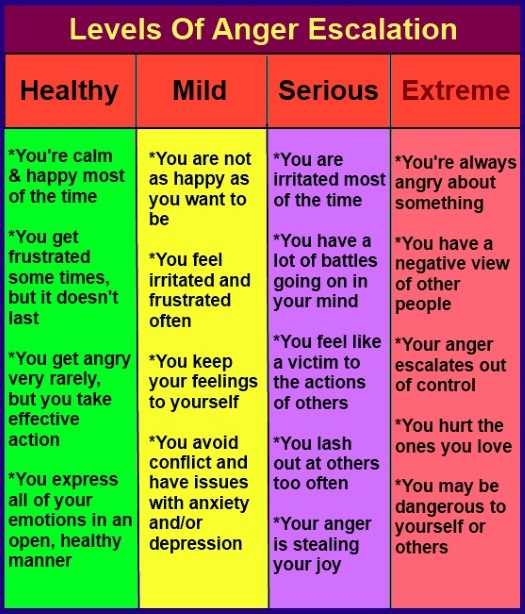
Anger Management Assessment
The degree of comparison is a grammatical concept that relates to using adjectives and adverbs. In essence, it is used to describe, modify or quantify adjectives or adverbs. There are 3 varying degrees of comparison and we shall explore each with a suitable example: Read on to the article to find more about Degree of Comparison Exercise, Rules.

Degrees of Comparison are used when we compare a person or thing with
Degree of comparison example: Incorrect - This track is more parallel to that one. Correct - This track is parallel and the other is not. Rule 5. There are a few adjectives that are accompanied by 'to', like, senior, junior, superior, inferior, preferable, prefer, elder. Do not use 'than' with these adjectives.

Clip Art Degrees of Comparison Pack 1 Clip art, Degrees of
The degree of comparison (or the grade of comparison) is the intensity of the adjective or adverb. There are three degrees of comparison: positive, comparative, and superlative. The positive degree is the base form of the word, without any comparison.
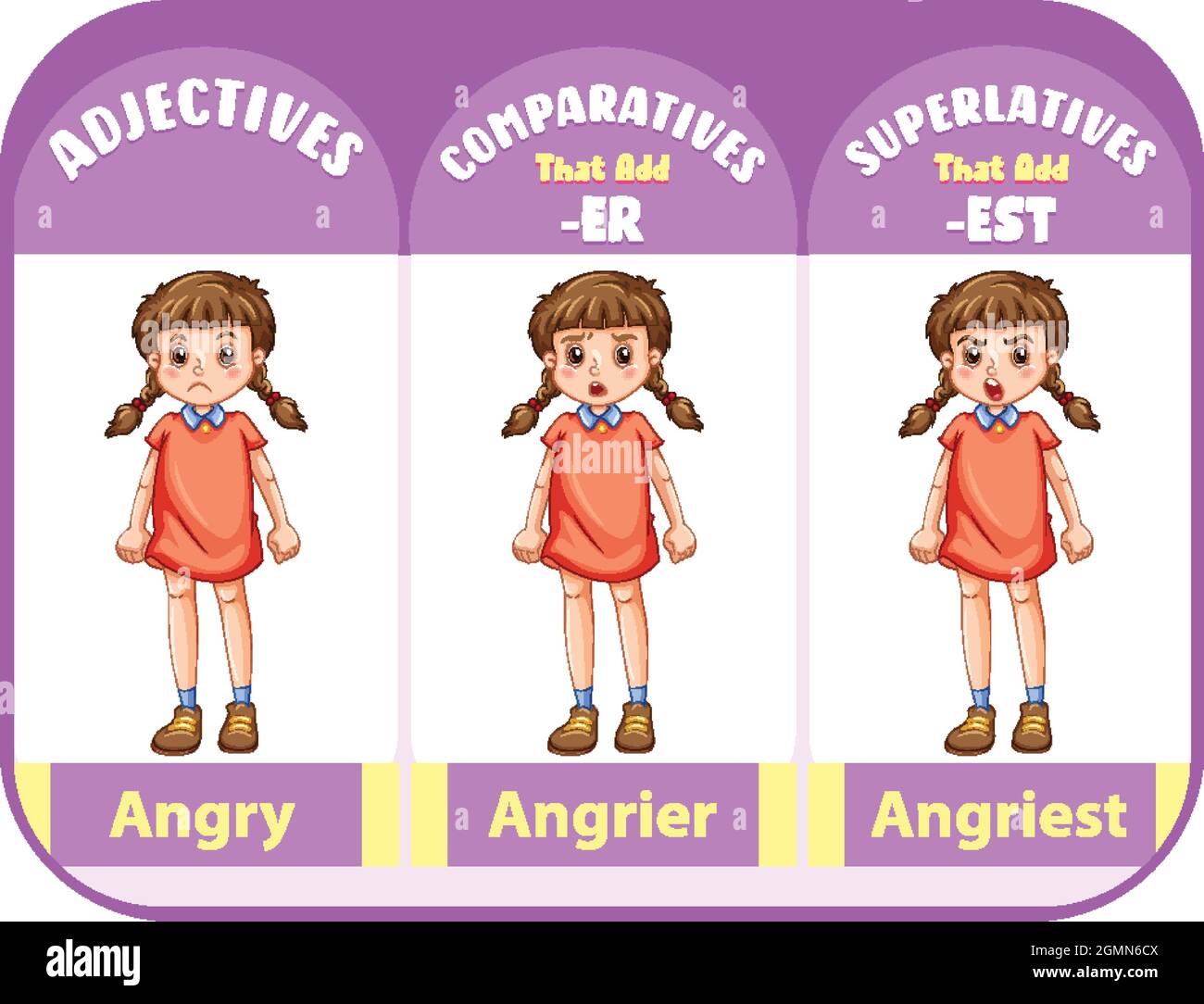
Comparative and Superlative Adjectives for word angry illustration
1.3 Degree of comparison : Practice Exercises with Answers. 1.3.1 Vitabalm*. 1.3.2 Active Shine***. 1.4 Answer Key for Diagnostic Test. 1.5 Answer Key for Practice Exercise. One of the basic requirements that need to be fulfilled by IELTS candidates is to have a good grasp of grammar. In order to achieve a high band score in IELTS, it is.

L du Plessis 2013 Degrees of
Adjectives 3 Degrees of Angry, Comparative Degree of Angry, Superlative Degree of Angry USMI 2 years ago 3 Degrees of Angry, Comparative Degree of Angry, Superlative Degree of Angry Table of Contents Comparative and Superlative Degree of Angry The comparative degree of angry is angrier and the Superlative degree of angry is angriest.

Degrees of Comparison grammar guide English ESL powerpoints
What is the Degree of Comparison? To describe, quantify, modify or identify nouns/pronouns, adjectives are used re used. Adjectives have their own degrees called degrees of adjectives or degrees of comparison that compare one thing/person to another. Adjectives have three degrees of comparison - Positive degree of adjectives,

Degrees of anger expand your emotional vocabulary and self awareness
Comparative adjectives 1 Comparative adjectives 2 Superlative adjectives We use the with superlative adjectives: It was the happiest day of my life. Everest is the highest mountain in the world. That's the best film I have seen this year. I have three sisters: Jan is the oldest and Angela is the youngest. Superlative adjectives 1
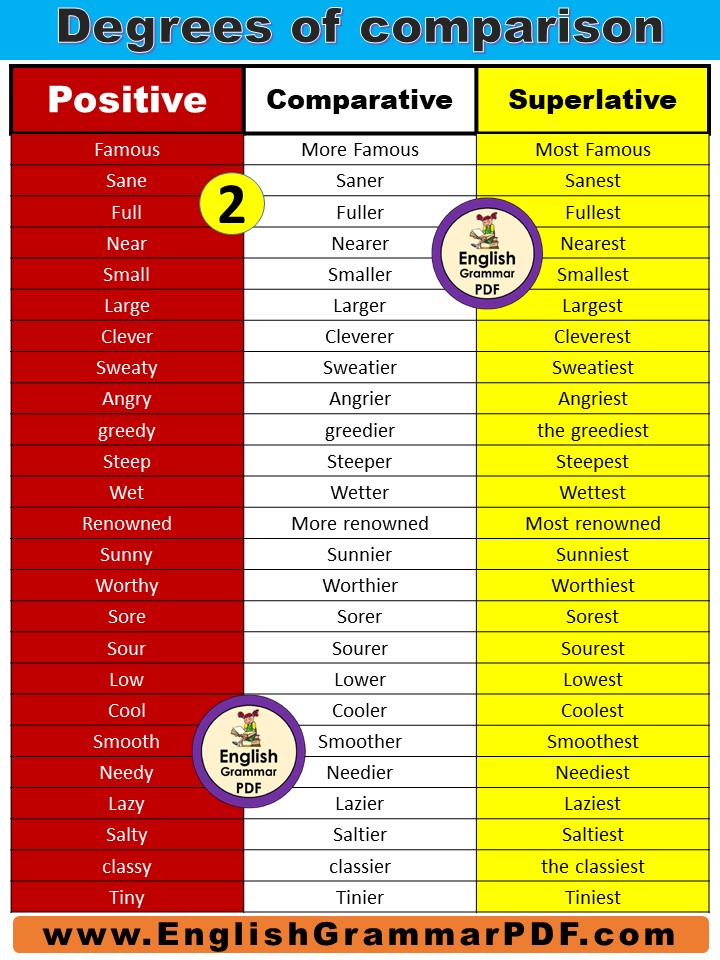
The degrees of comparison 100 Examples PDF English Grammar Pdf
Examples Degrees Of Comparison: Degrees of Comparison are used when we compare a person or thing with another. Degrees of Comparison are applicable only to Adverbs and Adjectives. Degrees of Comparison add variations to the sentences. A most familiar example of degrees i.e. good < better < best.